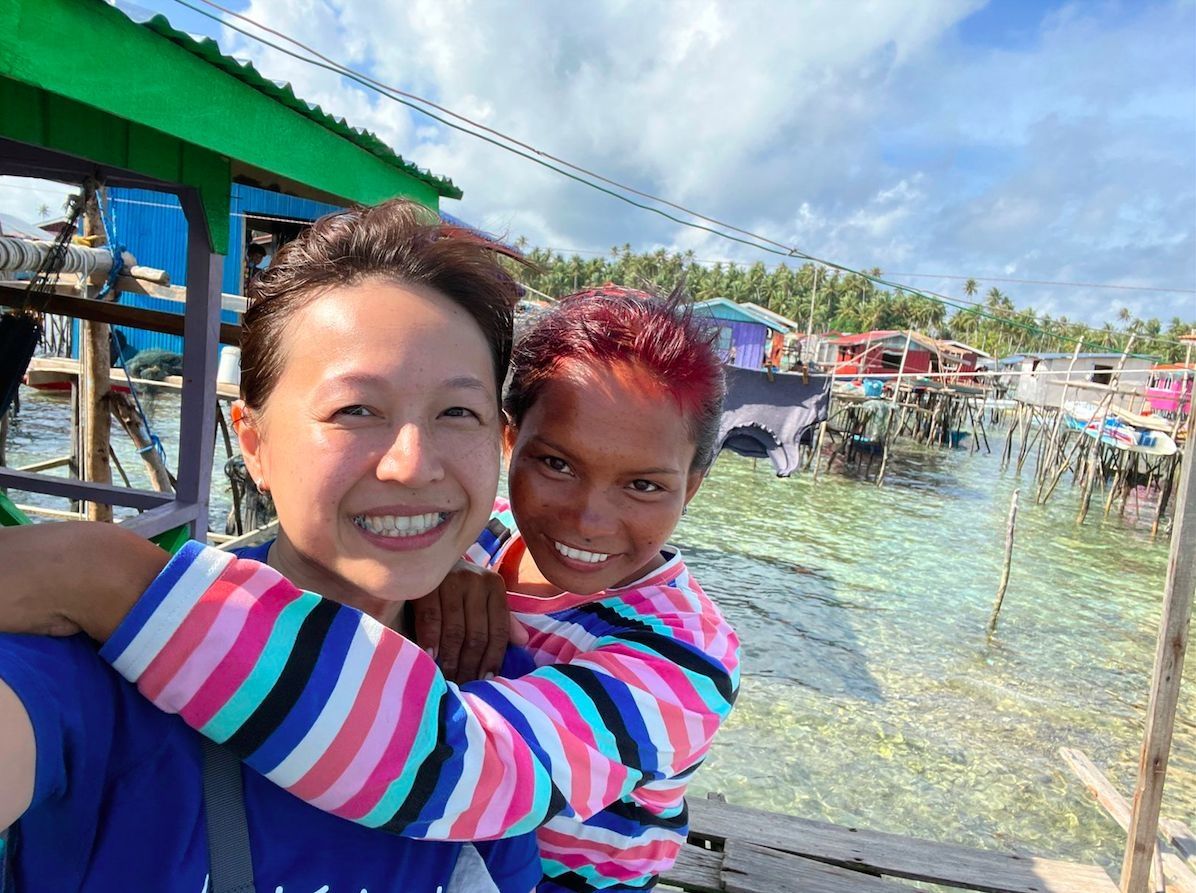Iskul has progressed since it first started in 2015, when Malaysian schoolchildren taught stateless children on the verandah of one of the homes. — Photos: CHUAH EE CHIA
EVERY morning, when the children come to school, they’ll select a book to read or a toy to play with while waiting for breakfast, after which, the teacher leads the meraikan pelajar (celebrating the student) session to foster a healthy relationship among the students.
This happens before the lessons begin, says Chuah Ee Chia, co-founder of Iskul Sama DiLaut Omadal (Iskul) which means Omadal Bajau Laut School in Bajau language.
Located in Omadal Island in Sabah’s eastern waters, the community-run school for stateless children started in 2015 with Malaysian schoolchildren teaching them three subjects – Bahasa Malaysia, Mathematics and Art – on weekends, on the verandah of one of the houses.
“Iskul has come a long way,” says Chuah, 40, “and this was possible because of the support, grants and sponsorships from generous parties throughout the years.”
One of the recipients of the Star Golden Hearts Award 2022 (SGHA) under the education category, Iskul was also the winner of the Gamuda Inspiration Award by Yayasan Gamuda with an additional grant of RM120,000.
Today, Iskul has its own space with a full-time teacher, project and field coordinators. Three of its former students have been hired as assistant teachers, or mastal arikik (little teachers in Bajau language).
There are currently 35 students aged seven to 13, who attend Iskul from Saturday to Wednesday, from 8am to 12noon.
A promise made
The school started 10 years ago when Chuah went diving in Mabul island and came across people living in boats in Pulau Omadal.
“My first memory of the place was of this eight-year-old girl – Ginara – who had the most captivating smile I’d ever seen. She approached me in a sampan for money. I befriended her and followed her to the boathouse where she lived with her parents and four siblings,” she says.
“I discovered more about their way of life and the many challenges they faced,” she adds.
Chuah promised herself to do something to help.
But it wasn’t until she returned to the island two years later for her internship and fieldwork with WWF Malaysia Semporna that she was inspired to start a school where children who are educated, teach their unschooled peers.
“I saw a group of children playing and one of them – Sakinah – spoke Malay. I told her to ask the children if they wanted to go to school and they said no. However, when I suggested that Sakinah teach them, they agreed enthusiastically,” she says.
Providing amenities
A lot of the things that we take for granted – running water, proper waste disposal system or health clinic with doctor and nurses – are not available to them, says Chuah.
“As a stateless community, many of them don’t have access to education or work,” she adds.
The school also teaches students about the environment and basic sanitation. It started a pilot project where the households would throw their plastic waste in a rubbish bin at Iskul (instead of into the sea) and the Iskul team would bring it to Semporna (that’s 40 minutes by boat) for disposal, Chuah says.
The grants have expanded Iskul’s humanitarian efforts beyond education, such as providing water tanks for the community to harvest rainwater. It has also started a mini hydroponic farm with Universiti Putra Malaysia (UPM).
There is no healthcare facility on the island so Iskul has started a mini clinic to provide first aid to the community.
Chuah says the team’s future plan includes training 10 community first aiders to provide basic treatment for the community.
To ensure Iskul’s continuity, Chuah says it is paramount that the children who have graduated, run it in the future.
“We hope one day, our students and assistant teachers will be able to run the school independently and by then, it will be self-sustaining,” she concludes.
This story is part of a series of articles featuring past Star Golden Hearts Award winners. Nominations are now open for this year’s award. Uplift your heroes by nominating them at www.sgha.com.my before July 31, 2023.









